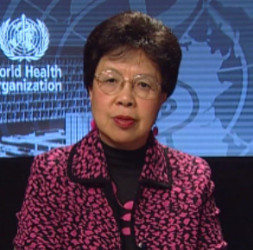GENEVA/LONDON (Reuters) – The World Health Organisation yesterday declared the mosquito-borne Zika virus an international public health emergency due to its link to thousands of birth defects in Brazil, as the UN agency sought to build a global response to the threat.
WHO Director-General Margaret Chan told reporters that coordinated international action was needed to improve detection and expedite work on a vaccine and better diagnostics for the disease, but said curbs on travel or trade were not necessary.
Chan, whose agency was assailed as too slow in reacting to West Africa’s Ebola epidemic that killed more than 10,000 people in the past two years, cited “first and foremost the big concern about microcephaly,” the birth defect that causes babies to be born with abnormally small heads and improperly developed brains.
She noted that it was “strongly suspected but not yet scientifically proven” that Zika causes microcephaly.
“Can you imagine if we do not do all this work now, and wait until the scientific evidence comes out?” Chan told reporters at the WHO headquarters in Geneva. “Then people will say that, ‘Why don’t you take action because the mosquito is ubiquitous?’”
The emergency designation, recommended by a committee of independent experts following criticism of a hesitant response to Zika so far, should help fast-track international action and research priorities. The move lends official urgency to research funding and other steps to stem the spread of the virus.
The WHO said last week the Zika virus, transmitted by the bite of the Aedes aegypti mosquito, was “spreading explosively” and could infect as many as 4 million people in the Americas. The Pan American Health Organization says Zika has spread in 24 nations and territories in the Americas.

This marks the fourth time the WHO has declared a global health emergency since such procedures were put in place in 2007, with the others arising from influenza, Ebola and polio.
US Centers for Disease Control and Prevention (CDC) head Thomas Frieden said the WHO emergency declaration “calls the world to action” on Zika. The CDC added four more countries and territories to its list of locales that pose a risk for Zika infection, advising pregnant women to consider avoiding travel to those areas.
Jeremy Farrar, director of the Wellcome Trust medical charity, said the WHO “should be congratulated for being far more proactive” this time.
Lawrence Gostin, a public health and law expert at Washington’s Georgetown University who last week called on the WHO to act urgently against Zika, welcomed Chan’s declaration but called for a clear strategy and ample resources.
“Actions speak louder than words,” Gostin said.
The Zika virus has raised questions worldwide about whether pregnant women should avoid infected countries. Chan said delaying travel was something pregnant women “can consider” but added that if they needed to travel they should take protective measures by covering up and using mosquito repellent.
The clinical symptoms of Zika are usually mild and often similar to dengue, which is transmitted by the same mosquito, leading to fears that Zika will spread into all parts of the world where dengue is commonplace.
More than a third of the world’s population lives in areas at risk of dengue infection, in a band stretching through Africa, India, Southeast Asia and Latin America.
Zika’s rapid spread in Latin America is attributed to the prevalence of Aedes aegypti and a lack of immunity among the population.
White House spokesman Josh Earnest said one way for the United States to reduce the risk of Zika there would be to try to control the mosquitoes that carry it.
“At some point here … we’re going to see the temperatures rise (and) that will make for a more hospitable environment for mosquitoes,” he said. “We want to make sure that we have got a strategy to try to limit the spread of this disease when that happens.”
A senior Obama administration official, speaking on condition of anonymity, said, “This is not an Ebola-type situation where you have to stop people at the border.”
New York State Governor Andrew Cuomo said the state’s health department would offer free tests for individuals with symptoms of infection who have travelled to countries impacted by Zika.





